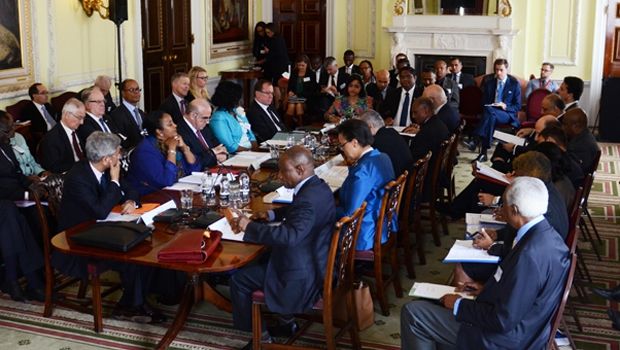Maldives and the Commonwealth’s formal agenda: both sides claim victory
Ministers here have said the CMAG had not placed the Maldives on its formal agenda, while critics argued that continued scrutiny means the Maldives is effectively on the 53-member inter-governmental body’s watch.

23 Apr 2016, 09:00
Human rights groups and opposition members have hit back at the government’s claim of victory following the Commonwealth’s review of the Maldives’ adherence to democracy last week.
Ministers here said the Commonwealth Ministerial Action Group had not placed the Maldives on its formal agenda, while critics argued that continued Commonwealth scrutiny means the Maldives is effectively on the 53-member inter-governmental body’s watch.
In its concluding statement on April 20, the CMAG – a watchdog body of foreign ministers – made no mention of the phrase “formal agenda,” but expressed grave concern over limited progress on all-party talks and the release of jailed opposition leaders. The group called for “clear, measurable progress” by September, when it will “assess progress, take stock, and take decisions accordingly.”
In a hastily arranged press conference on Wednesday night, Legal Affairs Minister Azima Shakoor, said: “The decision was that the situation in the Maldives is not serious enough to warrant being placed on the agenda. So once again, we have not been placed on the CMAG’s agenda. We are very happy with and welcome this decision.”
Become a member
Get full access to our archive and personalise your experience.
Already a member?
Discussion
No comments yet. Be the first to share your thoughts!
No comments yet. Be the first to join the conversation!
Join the Conversation
Sign in to share your thoughts under an alias and take part in the discussion. Independent journalism thrives on open, respectful debate — your voice matters.




